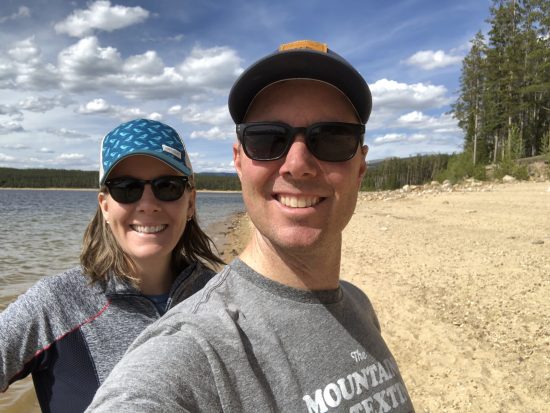Between the Ripple Effect Award, Alumni Spotlights, and our community events, we spend a lot of time highlighting the amazing things going on in the Cottonwood Institute community (and there are lots of them)!
We thought it might be fun to change it up a bit and share some more about what goes on inside of CI. Over the next few weeks (months?), we’ll be highlighting Cottonwood Institute Staff, Instructors, and Board Members to learn why they spend their time helping connect students to the outdoors. And what better place to start than with Founder and Executive Director Ford Church?
Why is exploring the outdoors important to you?

Do you have a formative memory of when you learned to love the outdoors?
Reflecting back on my childhood, I had a lot of little experiences exploring the outdoors that helped develop my love for the outdoors. From exploring in the woods with friends to camping and having adventures with my aunt and uncle. A big formative memory that sticks out was the week-long backpacking trip in the Georgia mountains I went on with my 8th grade class at Trinity Episcopal School in New Orleans. It was the big trip I looked forward to since I was in 1st grade. In the classroom, you only get to know your classmates very superficially. But when you spend a week backpacking together, sharing meals together and stories around a campfire, soaking in stunning views, and a few shared hardships and smelling together, you get to know people on a much deeper level. It was hard to backpack with 40 pounds on your back for many miles per day, but I loved every minute of it and couldn’t wait for the next opportunity to camp, backpack, and sleep under the stars.
How have you been staying connected to the outdoors during the lockdown?
My family has been going on a lot of socially distant hikes and we have a few family camping trips planned this summer. My children are now 9 and 11 and it has been fun teaching them skills I have learned over the years like starting our campfire with a striker and cottonball and other survival skills. They are now the fire masters, I just need to motivate them to help set up and break down camp properly…
What’s an unusual skill people might not know you have?
I used to work at Boulder Outdoor Survival School and learned how to make friction fire with materials gathered from the land. This is a powerful skill to know in a survival situation and it can be a fun party trick to show off 😉 But it is also a skill that can deeply connect you to your ancestors. We are all here today because our ancestors knew how to live off the land. Friction fire is a universal skill. All cultures mastered friction fire at some point with slightly different materials and techniques and we mastered it for over a million years. It is only recently in the last 100+ years that this knowledge stopped being passed down from generation to generation, so it I think it is important to relearn these vital outdoor skills.
What’s your favorite snack to eat in the woods?
My outdoor snacking skills could use some fresh creativity, but I love a good peanut butter and honey bagel to help me power through during a long hike. I’m now taking suggestions about how to up my outdoor snacking game!
If you didn’t work for Cottonwood, what do you think you’d be doing?
If I didn’t work for Cottonwood Institute, I think I would be scheming about how to start something like CI. I think it is incredibly important to help entice kids off of their screens and into the outdoors, especially in this moment in time and human history.
Thank you to Ford Church for his contributions!
Get involved with our Cottonwood Institute community!
- Follow us on Facebook, LinkedIn, and Instagram
- Join our Facebook CI Alumni group at: https://www.facebook.com/groups/49045662698/
- Send us your stories of what you have been up to since CI! Email us to get connected!
